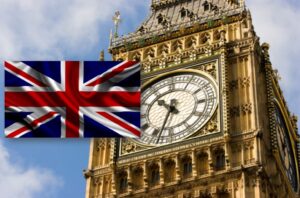Tax Turmoil in the UK: A New Era of Fiscal Responsibility or Government Greed?

In an alarming twist, UK lawmakers are proposing tax hikes that could burden over four million households. This drastic measure, aimed at addressing the fiscal mismanagement that has plagued British governance, is not just a financial decision; it could ignite a revolution among the populace. As the government exploits legal loopholes, homeowners in certain areas could face tax increases of up to 25%.
The Loophole Trap: Section 114
Local councils, constrained by legislation that limits tax increases to 4.99% without a public mandate, are now contemplating declaring themselves bankrupt under Section 114 to bypass these restrictions. Angela Rayner, Secretary of State for Housing, Communities, and Local Government, is at the forefront of this controversial move, with critics highlighting her own history of evading taxes through dubious claims of ignorance.
This is not simply a local issue—it’s a broader reflection of how those in power manipulate the system for personal gain. The Lib Dem-controlled Royal Borough of Windsor and Maidenhead has taken the lead in proposing a staggering 25% increase, justifying it by painting the area as affluent enough to "absorb" such increases. Similarly, Labour-run councils in Bradford and Birmingham are eyeing increases of 15% and 9.99%, respectively—the total number of councils looking to exploit Section 114 could reach eight.
Mismanagement at Its Core
What’s critical to understand is that these tax hikes will not fully address each council’s financial deficits. The government remains incessantly hungry for funds, seemingly indifferent to how these increases impact ordinary citizens.
It’s reminiscent of the backlash against Margaret Thatcher’s infamous poll tax, which sparked widespread protests and demonstrated how governmental decisions can lead to public outrage. At that time, Thatcher believed that increasing personal financial stakes would foster accountability, a belief that history proved fundamentally flawed. An inevitable truth remains: financial distress often leads to civil discontent.
How High Taxes Could Affect Economic Stability
As we look at the broader implications, the UK’s tax levels are set to soar to a record 38.2% of GDP, marking the highest rate in modern British history. This surge is projected to affect government spending, typically reserved for emergencies or wartime, and has raised eyebrows among economists predicting long-term economic decline.
Our analysis at Extreme Investor Network suggests that while the government touts an additional £40 billion ($80 billion) as a necessary investment for the future, the reality is that such spending could jeopardize Britain’s economic stability, particularly as we approach a forecasted unprecedented economic decline by 2026.

The Pound’s Predicament: An Economic Analysis
Our predictive models indicate that the British pound is on a trajectory that may see it collapse beyond its 1985 low as we advance towards the latter half of the decade. This projection stems from last year’s Double-Directional Change, a signal of unsettling shifts in economic stability. The left’s failure to grasp these realities reveals a perpetual misunderstanding of economic principles reminiscent of Marxist ideologies—an approach that may have led to Britain’s declining pride on the world stage.
Join the Conversation
At Extreme Investor Network, we are committed to providing insightful analysis and fostering discussions that matter to you as an investor or concerned citizen. As the UK enters this tumultuous chapter of fiscal policy, it is vital to remain informed and engaged. How do you feel about the proposed tax increases? Will they spark the change so many seek, or will they lead to widespread discontent and unrest?
Join us in dialogue and navigate these changes with understanding and foresight. Your voice matters—let’s make it heard!

